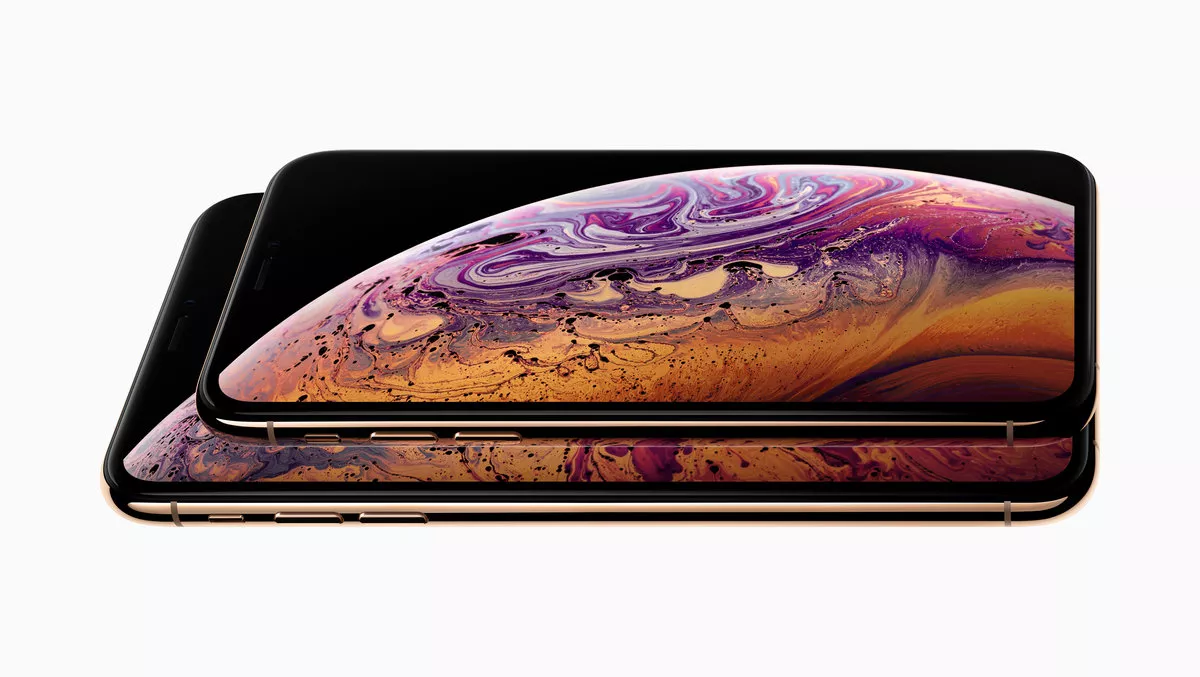
Hands-on review: iPhone XS Max is a luxury phone
The iPhone XS Max is the first large screen (6.5-inch Super AMOLED) Apple device that features a bezel-less screen.
It has slightly improved specs over the iPhone XS, and is positioned as a powerhouse for productivity and battery life.
I had the opportunity to review the XS Max, and here were my thoughts on it.
Design and displayThe design of the iPhone XS Max doesn't contain many surprises. As Apple promised, it's a bezel-less large screen phone, and follows closely in the design of its predecessor, the iPhone X.
Having and edge-to-edge screen makes a huge difference in terms of screen real estate and what you can achieve with it.
When the iPhone X was first introduced, the lack of bezels made a significant enough difference for me that I recommended it over the iPhone 8 Plus.
Yes, the notch remains, and it's in your face – but I got used to it quickly, and most apps have already been optimised so that it stays out of the way of their functionality or viewing experience.
Going from the iPhone 8 Plus to the iPhone XS Max, the screen space allows the iPhone to cross into a threshold that makes it viable for watching video for an extended amount of time in a way that it wasn't before.
The XS Max's Super Retina display is a step up even from the display of the iPhone X, which manifests in stronger contrasts and colours that pop more.
PerformanceThe iPhone XS Max features an A12 bionic chip, an upgrade from the previous generation's A11 chip.
I felt this most clearly in the reduced time it took for FaceID to verify my face and the faster load times when launching apps.
In terms of speed and performance, the XS Max excelled at whatever task I threw at it – which was expected for a device at its price point.
I've used to record audio, take notes, and take photos at the same time – all in a day's work for a journalist – and it's switched between and simultaneously handled all those functions reliably.
CameraThe iPhone XS Max's camera features the same dual-camera 12MP setup of wide-angle and telephoto camera as the iPhone X on the back and a 7MP true-depth camera on the front.
Because the hardware specs were the same, I expected to get a similar photo and video capture experience between the two phones.
However, after using the XS Max for a while and then switching back to the X, I realised there were a few areas where the XS Max performed better.
In low light situations, the front camera on the XS Max captures images that are less grainy and with slightly better colour reproduction, and the videos captured by the XS Max again, are better in low light conditions, which are part of the software optimisation improvements in the XS Max's camera.
In terms of overall photo quality, in-depth phone camera reviewer DXOMark ranked the camera on the iPhone XS Max seventh in comparison to other competing smartphones available in the market today.
Some of the cameras on other phones in the market deliver more granular capability and controls, allowing informed users to drill down into the settings they want to tweak and are able to produce better low-light images.
Personally, I still like the iPhone camera the most for being the best all-rounder camera with minimal effort to capture a good picture.
The improvements to its portrait mode have also made it more usable in more situations, and capable of capturing some truly professional images.
BatteryOne of the phone tasks that's been surprisingly battery-heavy for me has always been recording audio, and this is the battery killer when attending day-long conferences where I record multiple keynotes, speeches, and interviews.
The iPhone X saw an improvement in the battery, but I still had to carry a power bank around just in case.
However, the iPhone XS Max's battery has been reliable enough that I can put it through strenuous use without having to look for my power bank for backup.
Depending on what I've been using it for, I still find myself getting home with at least 20% battery on days of heavy use – navigation, note taking, audio recording, and filming; whereas regular days at the office with light use lets me get home with about 70% of battery remaining easily.
VerdictThe iPhone XS Max starts at $2,099 for the 64GB model, is $2,399 for the 256GB model, and $2,799 for the 512GB model.
This puts the phone squarely in the premium market and is definitely one of the priciest models available – there is no other way to put it.
For that money, users can get lower-end tablets, even a solid low or mid-range notebook.
Therefore, if price and performance value is what you're looking for, the iPhone XS Max probably won't come in at the top of your list.
However, if you can swallow the price, there's no denying that the iPhone XS Max is a great all-round smart device and is a great choice if privacy and data security are important to you and you're invested in the Apple ecosystem.


